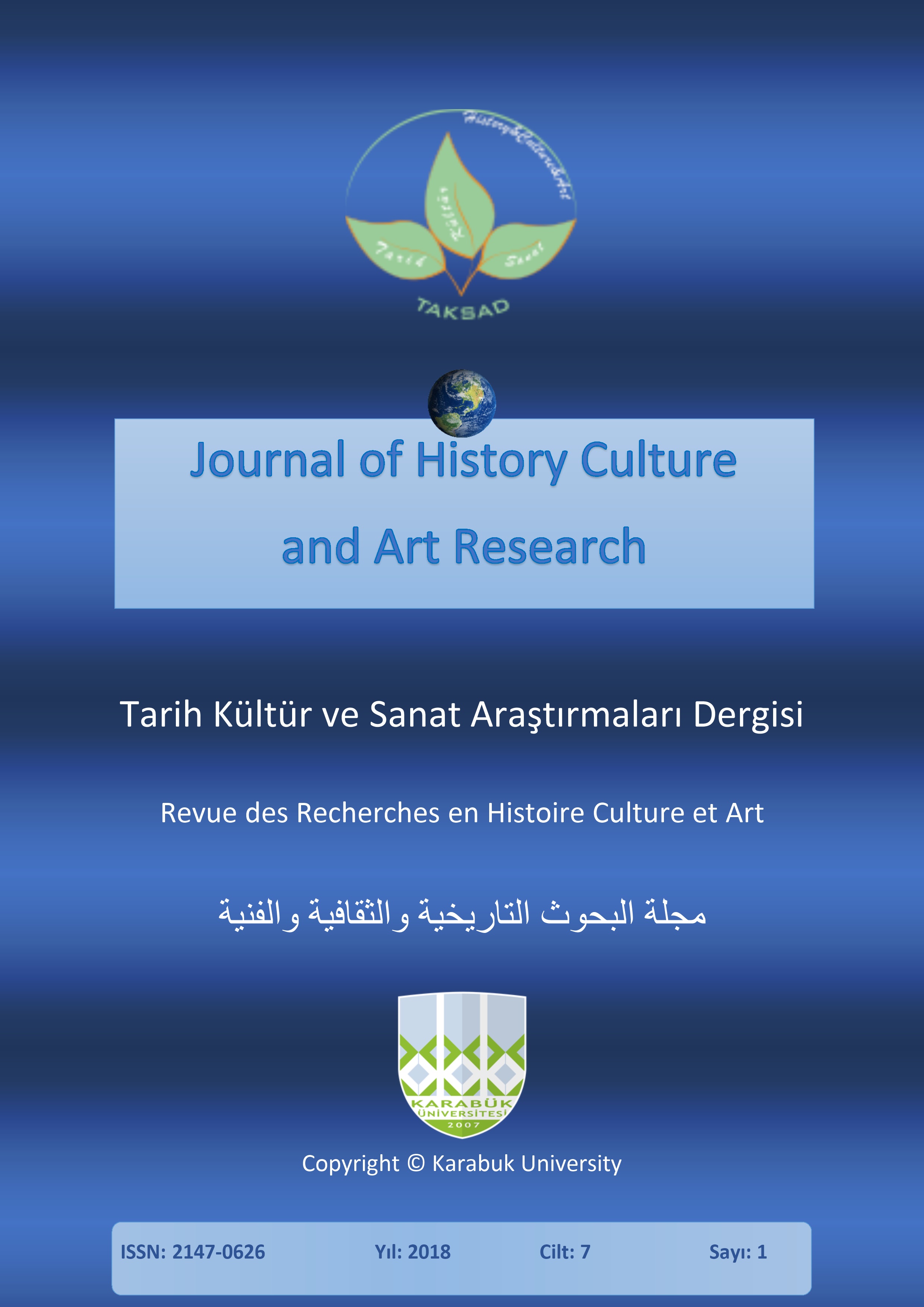Formation of Public Consciousness, Spiritual and Moral Culture of Students in the System of Continuous Pedagogical Education
DOI:
https://doi.org/10.7596/taksad.v7i1.1460Keywords:
Formation of public consciousness, Spiritual and moral culture of students, Continuous pedagogical education, Self-positioning of students.Abstract
The article is written within the framework of the project "Formation of social consciousness and spiritual & moral culture of students in the system of continuous pedagogical education on the basis of the patriotic idea "Mangilik El". There is an imposition through the media, including the Internet, on the territory of Russia, Kazakhstan, Ukraine, Belarus, etc. Western, supposedly "universal" values with an emphasis on liberalism and the free market. Only the rights and freedoms of the individual, without emphasis on the laws of community living in society, are put at the center of this work. It divides, individualizes society, provokes in the youth environment of excessive competition. The article presents the results of the study self-positioning of student youth. Young people's perception of themselves and their expectations of others portray an image of a person living in a state of heightened anxiety and a highly actualized need for security, material well-being and recognition focused on himself/herself and private life, ready for action and responsibility in the distance of his/her inner circle. The key components of his ideas about success in life: family and children, financial well-being, business work (55-60%) emerge from this self-attitude. Complement the normative model of success self-realization and the possibility of self-manifestation, education, health, beauty, sports (35-40%). The second plan – the criteria of success associated with the outside world (to be useful to society and people – 18%, recognition and respect from others, finding important contacts and connections, access to information and communication in social networks – 12-15%, politics and participation in political and public organizations – 1%). The model of success in life of young people today is largely confined to the man himself.
References
Abdulaeva, R.; Gereeva, M.; Bikbulatova, V.; Rabadanova, R. & Yulina, G. (2017). Psychological and pedagogical technologies of actualizing practical orientation of educational environment in a university. Espacios, 38(40).
Abylkassymova, A. E.; Ryzhakov, M. V. & Shishov, S. E. (2017). Modern trends in the development of continuous pedagogical education. Monograph. Almaty: Atamura.
Artamonova, E. I. (2009). Spiritual culture of the teacher and features of its formation in the modern society. International scientific conferecne "Educational work in the university: state, problems, prospects for development." (pp.377-386). Yaroslavl: Remder.
Bikbulatova, V.; Orlova, I.; Rabadanova, R.; Shishov, S. & Yulina G. (2016). Professionalization of an individual involved in the educational process in a higher education institution. International Journal of Environmental and Science Education, 11(14), 6671-6686.
Bolotnikov, I. E. (2011). Socio-moral education of the students in the context of the formation of the views of young people about social freedom and responsibility of the person. Psikhol. - PED. Search, 1(17).
Bulatnikov, I. E. (2011). Education of responsibility: monograph. Kursk: Dream.
Davydov, A. P. (2011). Cultural Crisis and Cultural Revolution in Russia [Electronic resource]. URL: http://www.liberal.ru/articles/5245
Debord, G. (2012). The society of the spectacle. Moscow: The Earth.
Foa, R. S. & Mounk, Y. (2017). The signs of deconsolidation. Journal of Democracy, 28(1).
Gorshkov, M. K.; Krumm, R. & Tikhonova, N. E. (eds.) (2012). The study of IS of RAS. The dream of the Russians: ideal and reality. Moscow: The Whole World.
Habermas, J. (1995). On the subject of history. Brief comments about the false prospects. The Philosophy of history. Moscow.
Isaev, I. F. (1999). Creative self-realization of the teacher: a cultural approach. Belgorod.
Kusherbayev, K. E. & Abylkassymova, A. E. (1998). Strategy for the development of higher education in the Republic of Kazakhstan. Monograph. Almaty: Bilim.
Nazarbayev, N. A. (2017). "A glance at the future: modernization of public consciousness." Astana: Kazakhstanskaya pravda newspaper, April 12, 2017.
Persily, N. & Cohen, J. (2016). Americans are losing faith in democracy and in each other [Electronic resource] Washington Post, 2016. www.washingtonpost.com/opinions/americans-are-losing-faith-in-democracy--and-in-each-other.2016/10/14/b35234ea-90c6-11e6 -9c520b10449e33c4_story.html? utm_term=.39bbc43865ec (date accessed: 26.02.2018).
Rahman, G. (2017). Authoritarian wave reached the West [Electronic resource] Vedomosti. http://www.vedomosti.ru/opinion/articles/2017/02/20/678496-avtoritarnaya-volna (date accessed: 21.02.2018).
Reprintsev, A. V. (2011). The Development of capitalism in Russian education: a view from provincial University. Psikhol. - PED. Search, 2(18), 24-42.
Reprintsev, A. V. (2012). Market type of person as a "social order" of modern social education: traditions of the ethnic group and the wilds of "modernization". Yaroslav. PED. Westn, 5, 18-27.
Research data "World research of values", 5th wave (2005-2009). http://www.worldvaluessurvey.org/WVSDocumentationWV5.jsp; Research data "World research of values", 6th wave (2010-2014). http://www.worldvaluessurvey.org/WVSDocumentationWV6.jsp.
Scherbina, A. I. (2012). Factors and conditions for the formation of the spiritual-moral culture of students in university’s conditions. Replication of the culture of society in the context of vocational education. Collective monograph. Georgievsk.
Scherbina, A. I. (2012). Model of the formation of the spiritual-moral culture of future teachers of preschool institutions in university’s conditions. Historical and socio-educational thought, 6, 145-148.
Tomina, O. (2015). Spiritual-moral education of future teachers in conditions of educational activity. URL: /oldconf.neasmo.org.ua/node/1797, Moscow.
Downloads
Published
How to Cite
Issue
Section
License
All papers licensed under Creative Commons 4.0 CC-BY.- Share — copy and redistribute the material in any medium or format
- Adapt — remix, transform, and build upon the material for any purpose, even commercially.
Under the following terms:
Attribution — You must give appropriate credit, provide a link to the license, and indicate if changes were made. You may do so in any reasonable manner, but not in any way that suggests the licensor endorses you or your use.
- No additional restrictions — You may not apply legal terms or technological measures that legally restrict others from doing anything the license permits.







